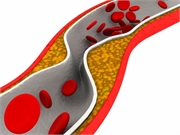
Rising obesity rates worldwide may be contributing to the climate crisis, researchers report. “Our analysis suggests that, in addition to beneficial effects on morbidity, mortality and health care costs, managing obesity can favorably affect the environment as well,” said study corresponding author Faidon Magkos, from the department of nutrition, exercise and sports at the University… read on >





























